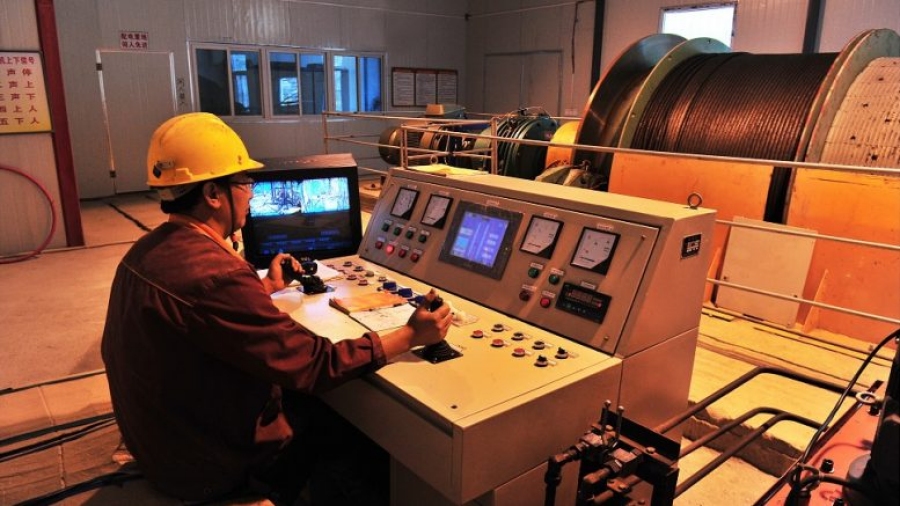Joint Venture Article: Silvercorp poised to leverage success in China into future growth

Silvercorp Metals (TSX: SVM; NYSE-American: SVM) is coming off a stellar 18 months wherein it generated significant shareholder value. The company has leveraged a strategic land position in China’s Ying high-grade silver-lead-zinc district, alongside an innovative approach to underground, narrow-vein mining, to emerge as one of the highest-margin miners in the silver space.
Silvercorp reported net income of US$44 million attributable to equity shareholders over the past fiscal year, and boosted its cash and equivalents by nearly US$35 million to US$97 million from the prior year.
The financial success was largely underpinned by all-in sustaining costs (AISC) of US$3.82 per oz. silver, which positions the company as one of the world’s lowest cost silver producers.
“Our model has always focused on putting high-grade assets into production as quickly as possible,” explains Chairman and CEO Dr. Rui Feng during an interview. “The approach has allowed us to control shareholder dilution and maintain a strong balance sheet by funding our operations through cash flow and earnings.”
Silvercorp’s position in the Ying district currently comprises six mines that contain over 200 veins.
The property occurs in the 300 km-long, northwest-trending Qinling orogenic belt, a major structural feature formed by the collision of two continental tectonic plates.
Mineralization comprises numerous mesothermal, silver-lead-zinc-rich, quartz-carbonate veins in steeply-dipping fault-fissure zones which cut Precambrian gneiss and greenstone.
“I’m aware of the preconceived notions of risk associated with China, but it is one of the best places to conduct mining business globally. Grade is king, and that’s what we have at Ying,” Dr. Feng comments. “I challenge anyone to cite a case where a mine owned by a foreign-controlled company has been expropriated by the Chinese. In addition, permitting is a very straight forward process.”
Silvercorp’s strategic advantage also includes the presence of six smelters within a 200 km radius of its Ying complex. Dr. Feng says the scenario “creates competition for concentrates,” which are “very high grade and very clean.”
The company’s ore contains almost no deleterious materials such as arsenic or antimony, and its concentrate is “highly sought after” by smelting operations as it can be used to blend with lower grade and less pure concentrates from other mines.
As a result, the regional smelters not only pay in advance for the concentrates, but also pay trucking costs.
“As long as a mining company receives high-quality mining rights, abides by state laws and regulations, implements strict mine management and is committed to its social responsibility to local communities, then this company will have stable production and profitability in China,” adds Silvercorp Director Yikang Liu, who served until 2001 as the Chief Geologist for the former Ministry of Metallurgical Industry of China.
Silvercorp runs twin processing facilities at the central Ying site with a total current design capacity of 3,200 tonnes per day.
During the past fiscal year, Silvercorp increased its silver and lead metal sales by 29% and 34%, respectively. The company sold 6.5 million oz. silver, 70.5 million lbs. lead, and 18.3 million lbs. zinc during the period.
The turnaround was largely orchestrated through a focus on higher head grades, which jumped around 50% over the past three years en route to 300 grams silver per tonne last quarter.
Dr. Feng attributes the improvement in efficiency and grades to a focus on operational innovation that is best embodied by the development of Silvercorp’s “Enterprise Blog” (EB) platform.
The system improves dilution and grade control via wireless connectivity wherein “all checklists and accompanying photos are uploaded to the blog from technicians and workers via their smart devices.”
The system has drawn interest from the Chinese government and other publicly-listed underground miners.
“Moving from a manual system to an internet-based reporting and work execution system has in itself helped to streamline our work flow. Additionally, the data we have compiled from the EB system has shown us where we needed to make changes to optimize our operations,” Dr. Feng elaborates.
“I took the basic concepts from social media applications, like Facebook and Twitter, and adapted them. The system is open and transparent and allows our entire team to search all posts. Anyone in the company can now review what is going on in the mines and mills at any time,” he adds.
Silvercorp has produced 51.1 million oz. silver and over 752 million combined lbs. of lead and zinc across the Ying operations since 2007, but it has also replenished much of its mine life.
In February the company updated its reserve and resource base, headlined by 12.3 million proven and probable tonnes grading 240 grams silver, 3.75% lead, and 1.27% zinc. The reserves contain 95.02 million oz. silver, 461,000 tonnes lead, and 155,700 tonnes zinc.
“We have effectively replaced what we have mined and established a strong production growth profile for the next 20 years,” explains Dr. Feng.
Silvercorp has guided for production of 5.7 million oz. silver, 63.1 million lbs. lead, and 18.3 million lbs. zinc this year.
The company’s share price has gained nearly 400% over the past 18 months en route to a $3.50 per share close at the time of writing. The company maintains 168 million shares outstanding for a $588 million market capitalization, and reports no long-term debt.
“We’re currently looking to expand our production footprint beyond China,” Dr. Feng concludes. “We’re assessing silver assets and would prefer to have lead-zinc by-products, and/or copper; however, we would also look at the right gold projects. Overall it comes down to grade and profitability.”
— The preceding Joint Venture Article is promoted content sponsored by Silvercorp Metals Inc and written in conjunction with The Northern Miner. Visit www.silvercorpmetals.com to learn more.
{{ commodity.name }}
{{ post.title }}
{{ post.date }}




Comments